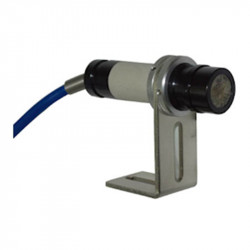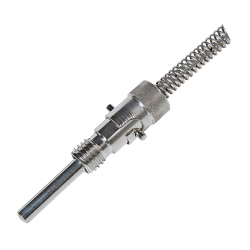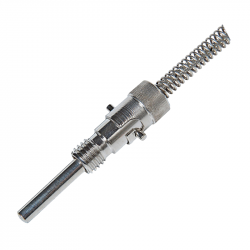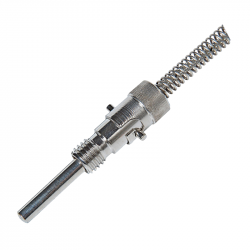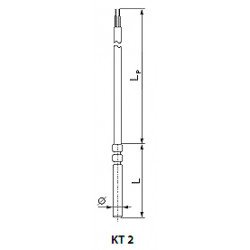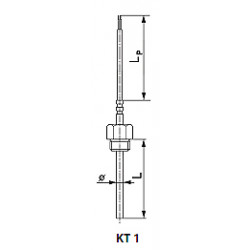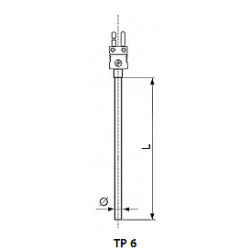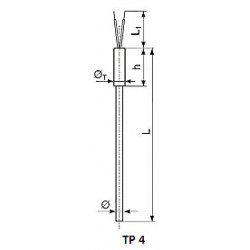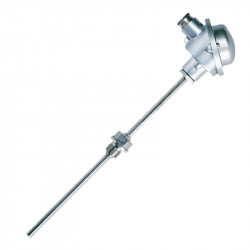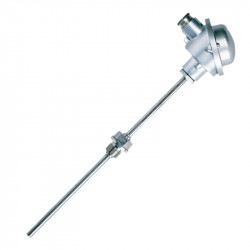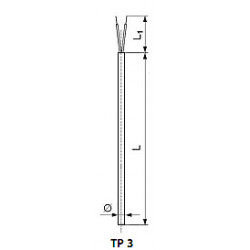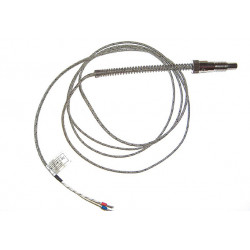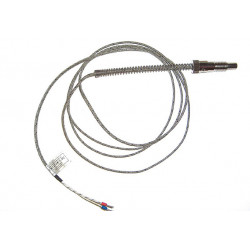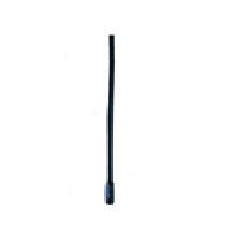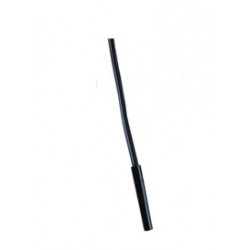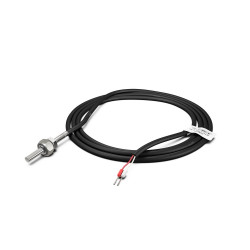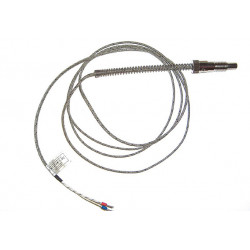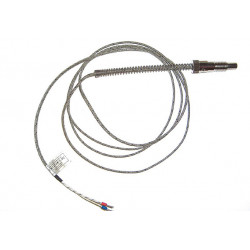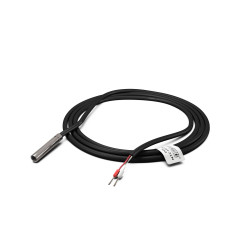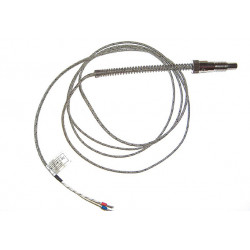Трябва да сте влезли в
Термодвойки
Категории
- Безконтактни температурни датчици за движещи се обекти - C015
- Термоелектрически датчик за температура със сменяема измерваща вложка в кожух в метална защитна тръба TD 1
- Термоелектрически датчик за температура със сменяема измерваща вложка в кожух в метална защитна тръба TP 1
- Термоелектрически датчик за температура със сменяема измерваща вложка в кожух в метална защитна тръба TP 1 TD 2
- Термоелектрически датчик за температура – три-точково измерване. тип: tw
- Термоелектрически датчик за температура в кожух със свободни краища. тип: tp 3
- Термоелектрически датчик за температура в кожух с втулка. тип: tp 4
- Термоелектрически датчик за температура в кожух с втулка. тип: tp 6
- Термоелектрически или съпротивителен датчик за температура тип: kt1
- Термоелектрически или съпротивителен датчик за температура тип: kt2
- Права термодвойка (J, K, N) – TC-07
- Термодвойка в кожух (J, K, N) – TC-42
- Термодвойка със съединение с резба (J ) – ETB
We’re offering a wide assortment of thermocouples for industrial applications and automation.
Temperature measurement is one of the most important actions in automation - in industrial conditions, the most commonly used are thermocouples and resistance temperature sensors.
Thermocouples - application
Thermocouples, also called thermoelectric temperature sensors, are one of the most popular solutions in the industry. Their main applications include laboratories, transportation, measuring-control apparatus, data systems, multi-channel devices, thermovision systems, and military equipment.
Benefits of thermocouples:
- low price,
- simple, stable, and faultless construction,
- predictable output voltages,
- possibility to use in chemically aggressive environments,
- wide range of temperatures, from -100°C up to over 2500°C
- highly precise measurement.
Types of thermocouples and their applications
For thermocouple's construction, various types of metals are used, from which each is intended for a different application.
E type - alloys for temperatures from -200°C to 871°C. Used in atmospheres from vacuum to slightly oxidative and in low temperatures.
J type - alloys for lower temperatures (0°C to 600°C). Used in the chemical industry.
K type - industrial standard up to 1250°C.
T type - alloys for temperatures from -200°C to 350°C. Common in the food industry.




